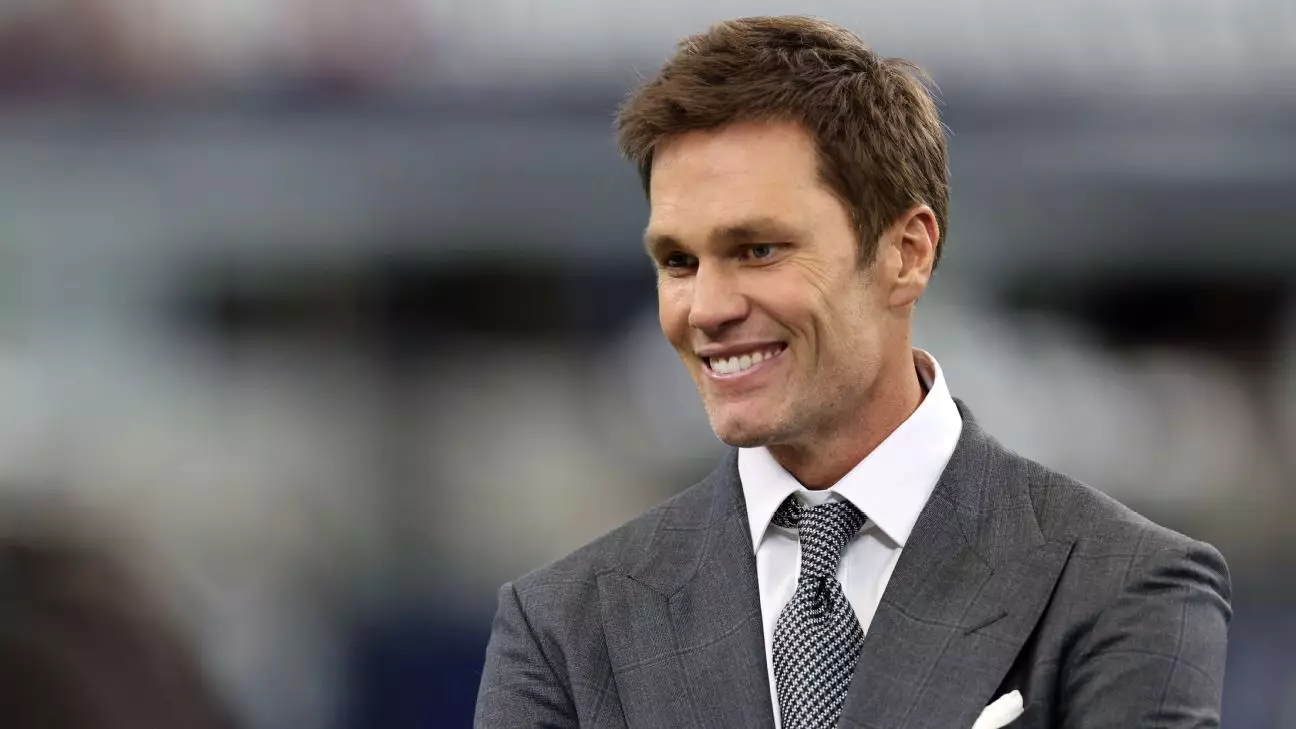In the high-stakes universe of professional football, where every inch of strategic advantage counts, the involvement of high-profile personalities such as Tom Brady in various capacities raises uncomfortable questions about fairness and integrity. Ben Johnson’s dismissive attitude toward concerns over conflicts of interest underscores a dangerous complacency. While he claims that conversations with Brady won’t reveal proprietary secrets, this perspective is fundamentally shortsighted. The NFL’s ecosystem is deeply interconnected, and the possibility of subtle information exchange—intentional or accidental—poses a real threat to competitive balance.
Allowing a renowned analyst who is also a minority owner of a rival team to sit in on production meetings and influence game-day narratives is problematic. It not only risks the integrity of the sport but also undermines public trust. The NFL, as a televised spectacle and a pinnacle of competitive athletic achievement, must prioritize transparency and fairness over convenience or perceived harmlessness. Johnson’s nonchalant stance suggests a complacency that could facilitate the erosion of the league’s credibility. The league’s silence on these issues might be perceived as tacit approval, further muddying the waters of ethical conduct within the sport’s highest level.
Conflicting Interests and the Illusion of Transparency
The NFL’s policy that permits Brady’s presence in the coaches’ booth under the guise of “limited partnership” is a troubling loophole. While league representatives argue that there are no explicit restrictions preventing team owners or minority stakeholders from attending games in certain capacities, this ambiguity invites exploitation. The key issue is not just the letter of the policy but its spirit. When a figure like Brady, whose insights and influence extend beyond mere commentary, can sit in on production meetings and attend games with limited oversight, it erodes the league’s internal safeguards.
From a broader perspective, this situation exemplifies the ongoing tension between commercialization and integrity. The NFL’s embrace of star power and celebrity culture is undeniable, but at what cost? Is it willing to sacrifice the perceived fairness of competition for the allure of high-profile narratives? Such a stance is perilous. Transparency isn’t merely about following rules; it’s about fostering an environment where players, coaches, and fans can believe in the game’s integrity. When leadership appears indifferent to conflicts of interest, it hampers confidence in the league’s governance and sets a dangerous precedent.
Power Dynamics and the Responsibility of League Leadership
The NFL’s response to these concerns reveals a troubling prioritization of spectacle over accountability. By defending Brady’s involvement as a “limited partner,” league officials sidestep the deeper issues of influence and information flow. This approach reflects a broader tendency among powerful organizations to downplay potential conflicts, often under the guise of pragmatism and business necessity. It also highlights the critical importance of rigorous oversight and clear boundaries—elements that are glaringly absent here.
As a society that champions fairness and equal opportunity, we should scrutinize how such practices compromise the integrity of sport. The league’s leadership bears a moral responsibility to set stricter policies that eliminate any ambiguity. Whether it’s safeguarding competition or upholding public trust, the NFL must recognize that allowing non-transparent dealings behind the scenes undermines the very foundation of competitive sports.
The current situation is emblematic of a larger issue—one where the pursuit of spectacle and personal interest overshadows the fundamental principles of fairness. If the NFL is serious about maintaining its integrity, it must reevaluate how it manages conflicts of interest, especially when influential figures are involved. Favoring superficial compliance over genuine transparency risks not only the sport’s reputation but also the trust of its devoted fans.

